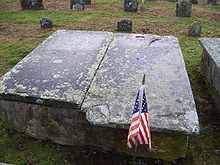Benjamin Church (ranger): Difference between revisions
m →Biography: move pic |
Hantsheroes (talk | contribs) added reference to Noel Dorion |
||
| Line 31: | Line 31: | ||
Over the next 28 years, Church led five New England raiding parties into [[Maine]] and [[Canada]] against the French and Indians. Beginning in 1696, he carried out devastating raids in [[Acadia]], now holding the rank of major. Despite weighing approximately 250 pounds, he led his troops personally in killing inhabitants of Beaubassin, looting their household goods, burning their houses and slaughtering the livestock. |
Over the next 28 years, Church led five New England raiding parties into [[Maine]] and [[Canada]] against the French and Indians. Beginning in 1696, he carried out devastating raids in [[Acadia]], now holding the rank of major. Despite weighing approximately 250 pounds, he led his troops personally in killing inhabitants of Beaubassin, looting their household goods, burning their houses and slaughtering the livestock. |
||
He took [[Noel Doiron]] prisoner in his 1704 raid on the Bay of Fundy, Nova Scotia.<ref>Scott, S. @Scott, T. Noel Doiron and the East Hants Acadians. The Journal: The Nova Scotia HIstorical Society.</ref> |
|||
He held public office as the first representative of Bristol at Plymouth between 1682 and 1684. Church died at [[Little Compton, Rhode Island]] in 1718 and was buried in the [[Little Compton Common]] cemetery. |
He held public office as the first representative of Bristol at Plymouth between 1682 and 1684. Church died at [[Little Compton, Rhode Island]] in 1718 and was buried in the [[Little Compton Common]] cemetery. |
||
Revision as of 16:10, 12 January 2010
Major Benjamin Church | |
|---|---|
 Woodcut print of Benjamin Church | |
| Allegiance | Plymouth Colony |
| Service/ | Ranger |
| Rank | Major |
| Commands held | Church's Rangers |
| Battles/wars | King Philip's War |
| Other work | representative |
Major Benjamin Church (c. 1639-January 17, 1718) was an American carpenter, military officer, and Ranger during America's Colonial era, and specifically, King Philip's War.
Biography
Born in Plymouth Colony in about 1639, Church married Alice Southworth on December 26, 1667 in Duxbury, Massachusetts. He resided for a time in Duxbury and later moved to Bristol, Rhode Island.
Church was the principal aide to Governor Josiah Winslow of Plymouth Colony. Holding the rank of captain, he fought during King Philip's War (1675–1678) on the New England frontier against the Wampanoag, Nipmuck and Podunk tribes of Indians. He is best known for his actions during this time in commanding a company of men independent of the governor's direct command. Church's men were the first colonial force successful in raiding the Indians' camps in forests and swamps. During previous decades, colonists were on the defense against the Natives, although relations were generally peaceful until 1675.

Church was eventually allowed to recruit Indians when traditional Army tactics of the times were unsuccessful. He persuaded many neutral or formerly hostile Indians to surrender and join his unit, where they operated skillfully as irregular troops. Some of these men had converted to Christianity in settlements before the war. These were known as Praying Indians. After being organized by Church, these troops tracked Indians into the forests and swamps and conducted effective raids and ambushes on their camps. During the Great Swamp Fight, Church was wounded while playing a leading role in the battle. The war soon ended after an operation by Church's company on August 12, 1676, when one of Church's Indian Rangers (John Alderman) killed Metacomet - the chieftain also known as King Philip. Upon inspection of Philip's body, Church is quoted as saying "a doleful, great, naked, dirty beast." Philip was then butchered in a manner standard with English punishment for treason, drawing and quartering.
Over the next 28 years, Church led five New England raiding parties into Maine and Canada against the French and Indians. Beginning in 1696, he carried out devastating raids in Acadia, now holding the rank of major. Despite weighing approximately 250 pounds, he led his troops personally in killing inhabitants of Beaubassin, looting their household goods, burning their houses and slaughtering the livestock.
He took Noel Doiron prisoner in his 1704 raid on the Bay of Fundy, Nova Scotia.[1]
He held public office as the first representative of Bristol at Plymouth between 1682 and 1684. Church died at Little Compton, Rhode Island in 1718 and was buried in the Little Compton Common cemetery.
Legacy
Church kept notes on his tactics and operations in 1675-1676 which were eventually published in 1716 as "Entertaining Passages relating to Philip's War". *Captain Church was the grandfather of Dr. Benjamin Church, the first "Surgeon General" (though that title came later) of the Continental Army. Dr. Benjamin Church, thought to be one of the staunchest Whigs/Patriots, was arrested by George Washington as a spy for General Thomas Gage.
See also
References
- US Army Ranger Hall of Fame
- Historical Biographies, Nova Scotia
- Lepore, Jill, "Plymouth Rocked", The New Yorker, April 24, 2006 Lepore doubts the veracity of Church's memoirs.
- Philbrick, Nathaniel, Mayflower: A Story of Courage, Community, and War. New York: Viking Penguin, 2006. ISBN 0-670-03760-5
- Faragher, John Mack, A Great and Noble Scheme New York; W. W. Norton & Company, 2005. ISBN 0-393-05135-8
- ^ Scott, S. @Scott, T. Noel Doiron and the East Hants Acadians. The Journal: The Nova Scotia HIstorical Society.
